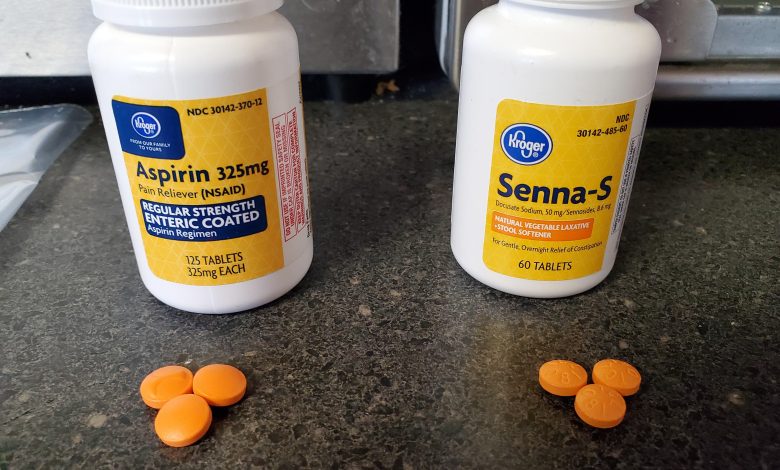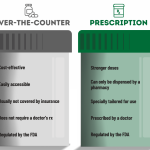Understanding the Risks of Over-the-Counter Medications

Over-the-counter (OTC) medications have been around for centuries, dating back to ancient civilizations. For example, the Egyptians used natural remedies such as honey, aloe vera, and myrrh to treat various ailments. The Greeks and Romans also used natural remedies, such as herbs and plants, to treat illnesses.
In the 19th century, modern medicine began to emerge, and pharmaceutical companies started producing medications that could be sold without a prescription. At first, these medications were only available in pharmacies, but as the demand grew, they became widely available in grocery stores and other retail outlets.
One of the first widely used OTC medications was aspirin, which was introduced in the late 1800s. Aspirin quickly became popular as a pain reliever and fever reducer, and it remains one of the most widely used OTC medications today.
Throughout the 20th century, new OTC medications were introduced for a wide range of conditions, including allergies, cough and cold, heartburn, and pain relief. These medications were marketed directly to consumers through advertising and promotional campaigns, and many became household names.
In the United States, the regulation of OTC medications is overseen by the Food and Drug Administration (FDA). The FDA sets standards for the safety and effectiveness of these medications, and requires that they be clearly labeled with dosage instructions, warnings, and other important information. Today, OTC medications are used by millions of people around the world for a variety of conditions.
Definition of Over-the-counter (OTC) medications
Over-the-counter (OTC) medications are drugs that can be purchased without a prescription from a healthcare provider. These medications are widely available and can be found in many pharmacies, grocery stores, and convenience stores. They are commonly used to treat a range of minor illnesses and health conditions, including allergies, headaches, coughs, colds, and indigestion.
Despite their widespread availability and common use, many people do not fully understand the potential risks associated with using OTC medications. It is important to understand these risks and take steps to use these medications safely.
Overdose
One of the biggest risks associated with OTC medications is overdose. It is possible to accidentally overdose on these medications if you take more than the recommended dose or combine multiple medications that contain the same active ingredient. For example, taking two different medications for pain relief that both contain acetaminophen can increase your risk of liver damage.
Side effects
Another risk associated with OTC medications is side effects. Like prescription medications, OTC medications can cause side effects such as drowsiness, nausea, and stomach upset. These side effects can be especially concerning for children, the elderly, and people with certain medical conditions.
Drug Interactions
OTC medications can also interact with other medications, supplements, or medical conditions, potentially causing harmful side effects. For example, taking an OTC medication for allergies along with a prescription medication for high blood pressure can cause a dangerous drop in blood pressure.
Allergies
Additionally, some people may be allergic to certain OTC medications, which can cause symptoms such as hives, swelling, or difficulty breathing. If you experience any symptoms of an allergic reaction after taking an OTC medication, seek medical attention immediately.
How To Use OTC Medications Safely
To use OTC medications safely, follow these tips:
1. Read the label: Before taking any OTC medication, read the label carefully. Look for the active ingredient, dosage instructions, and any warnings or precautions.
2. Follow dosage instructions: Never take more than the recommended dose of an OTC medication. Be sure to follow the dosage instructions on the label, and do not take the medication more frequently than recommended.
3. Check for interactions: OTC medications can interact with other medications, supplements, or medical conditions, potentially causing harmful side effects. Talk to your healthcare provider or a pharmacist about all medications, supplements, and vitamins you are taking, as well as any medical conditions you may have.
4. Avoid combining medications: Do not combine multiple medications that contain the same active ingredient. For example, taking two different medications for pain relief that both contain acetaminophen can increase your risk of liver damage.
5. Be aware of side effects: OTC medications can cause side effects such as drowsiness, nausea, and stomach upset. If you experience any side effects after taking an OTC medication, stop taking the medication and talk to your healthcare provider.
6. Be cautious with children: OTC medications can be especially risky for children. Be sure to use the appropriate dosage based on the child’s weight and age, and avoid giving medications that are not recommended for children.
7. Store medications safely: Keep OTC medications out of reach of children and pets, and store them in a cool, dry place. Check the expiration date before taking any medication, and dispose of any expired or unused medication properly.
By following these tips, you can use OTC medications safely and avoid potential risks and side effects. If you have any concerns or questions about the use of OTC medications, talk to your healthcare provider or a pharmacist. They can provide guidance on the appropriate use of these medications and help you understand the potential risks and benefits.





